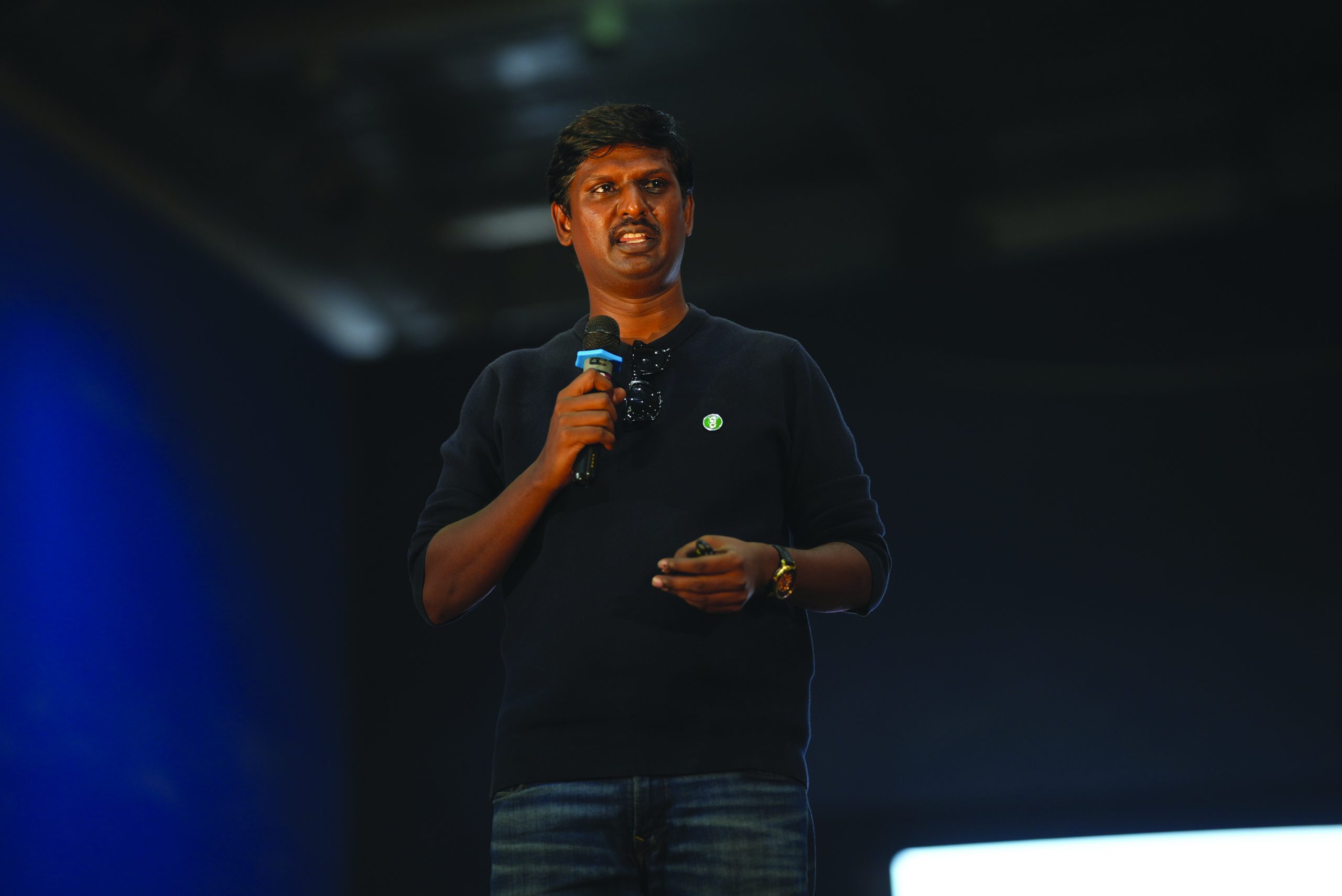
Prakash: vernaculars champion
Arun Prakash is founder-CEO of Chennai-based GUVI (Grab Ur Vernacular Imprint) EdTech Pvt. Ltd (estb.2014), an online education company incubated at IIT-Madras. Supported by Google Launchpad and Jio Gennext, GUVI offers a wide range of short-term, job-oriented online courses ranging from Python with IIT certification and robotic process automation to game development and basic digital literacy skills. In 16 Indian vernacular languages. Since it was established 11 years ago, GUVI has trained over 3 million learners in India and abroad.
Newspeg. Last December, in collaboration with Freshworks (a global SaaS company providing user-friendly customer support and business software), GUVI launched Project GENIE, an AI-powered program to train schoolteachers — even without tech backgrounds — in emerging Generative AI tools. To date, over 1,300 educators in Tamil Nadu have been trained. So thoroughly that they have ideated and uploaded 336 AI-driven education apps.
History. Born into a rural household of modest means, after clearing higher secondary in a Tamil-medium government school, Prakash resolved to qualify as a physicist. But his father encouraged him to pursue computer science engineering instead. “We didn’t have a computer at home. I learned to write code on paper. One of my friends acted as a ‘computer’ and assessed my handwritten code correcting mistakes. Thanks to him, I learned coding skills and started winning hackathons/coding competitions in college (Sethu Institute of Technology, Virudhunagar),” he recalls.
After graduating in 2003, Prakash acquired valuable experience in Honeywell Aerospace for four years, followed by KLA-Tencor in 2007, Kalido the next year, PayPal in 2011, and Symantec in 2013. Even as he was set to go places in the ICT (information communication technology) world, a visit to his hometown forced a life-changing career switch. “I saw how little things had changed. Students were unable to access new technologies and acquire industry-relevant skills, mostly because of poor knowledge of English,” he recalls.
Therefore, in 2011, Prakash launched a YouTube channel with videos teaching coding in ‘Tunglish’ — a mixture of Tamil and English. The channel proved to be a huge hit with several videos crossing the million views milestone and enthusing the Tamil diaspora in the UK and US.
Encouraged by this development, Prakash quit the corporate life and together with wife Sridevi and former PayPal colleague Balamurugan S.P, pitched GUVI to Prof. Ashok Jhunjhunwala, president of the IIT-Madras Research Park. Under his mentorship and financial support from IT major HCL Group, GUVI was incubated in IIT-M in 2014.
Direct talk. “My mission is deeply personal as I know what it feels to struggle with English in a world where tech education is locked behind that language. GUVI was ideated to overcome the English language barrier. What sets GUVI apart is its learner-first approach — each course is carefully designed to suit students, teachers and working professionals to become computer literate in their own mother tongues. Project GENIE was launched last year with the objective of introducing all teachers without tech background, to utilize Generative AI tools. Since then, some of the most innovative apps have been designed by teachers who had never written a line of code before. Inspired from the structured training models of Honeywell and the scalable systems of PayPal, GUVI intends to make tech education not just inclusive, but transformative,” enthuses Prakash. Course fees: Rs.1,500-3,000.
Future plans. Encouraged by enthusiastic public response to GUVI courses, Prakash and his team are strategising to roll-out Project GENIE countrywide, starting with private institutions and then government schools. “We are currently in talks with the Uttar Pradesh and Telangana governments to train their teachers to become familiar with Generative AI tools. The potential is enormous,” he says.
Shivani Chaturvedi (Chennai)
Also Read: Revitalizing Indian education system with ancient wisdom: A holistic approach to learning























